
Introduction
Hello, Dear readers. I’m Dr. Ashish Agrawal, an interventional cardiologist practising at ‘The Heart Clinic’ in Mumbai. The topic we are diving into today is close to my heart—Types of Heart Diseases & its Management.
I firmly believe that awareness is the first step towards well-being.
This blog aims to empower you with the knowledge to understand, recognize, and manage heart diseases better.
So, let’s get started!
Overview
The heart is an indispensable organ, a workhorse that pumps life into us.
Understanding how it can falter helps us take timely measures.
This article outlines the different types of heart diseases, their causes, and how to manage them effectively.

What is Heart Disease?
In layman’s terms, heart disease refers to any condition that affects the heart’s normal functioning.
It can range from blockages in the blood vessels to irregular heartbeats.
Knowing what type you have is crucial for effective management.
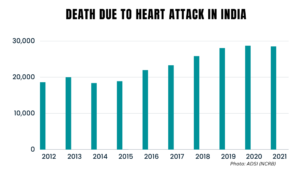
Is Heart Disease a Common Condition in India?
Yes, sadly, heart disease is becoming increasingly common in India.
Based on a study from the Indian Council of Medical Research and the Registrar General of India, India shoulders an alarming 60% of the world’s total heart disease burden.
Based on research conducted by the Indian Council of Medical Research (ICMR) and Registrar General of India, a staggering 60% of the global heart disease cases are from India.
As for the mortality rate, National Crime Records Bureau (NCRB) data reveals that the number of lives lost to heart attacks in India has consistently exceeded 25,000 annually over the past four years.
This number even surged to over 28,000 in the last three years.
Although there was a slight decrease from 28,680 deaths in 2020 to 28,449 in 2021, the figures remain alarmingly high.
Stressful lifestyles, poor dietary habits, and lack of exercise contribute to this grim scenario.
It’s a ticking time bomb that we need to defuse with immediate action.
Types of Heart Diseases
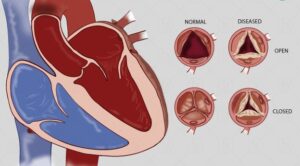
1)Rheumatic Heart Disease
This is often a consequence of untreated throat infections. It primarily impacts the heart valves and requires long-term care.

2)Valvular Heart Disease
Here, one or more valves in your heart don’t function properly. Medication and sometimes surgery are the options for management.
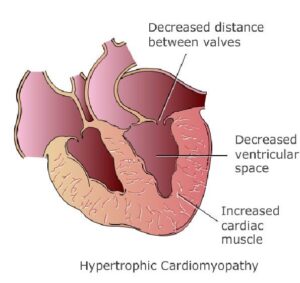
3)Hypertensive Heart Disease
High blood pressure can make your heart work harder, affecting its function over time.
Medication and lifestyle changes are key.
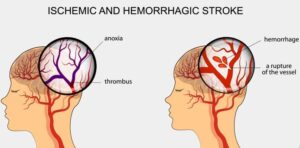
4)Cerebrovascular Disease
This affects the blood vessels supplying the brain.
Though not directly a heart disease, its management includes heart-healthy practices.
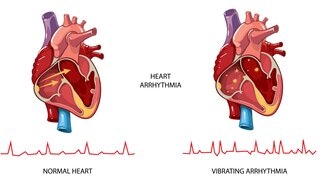
5)Abnormal Rhythm of the Heart
Also known as arrhythmia, it’s when your heart beats too fast, slow, or irregularly.
Treatment ranges from medications to surgical procedures.
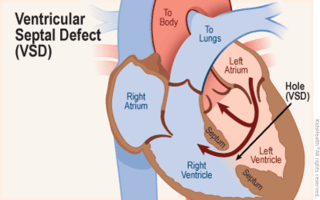
6)Heart Wall Defects
These are often congenital issues. Surgical intervention is usually necessary for management.

7) Inflammatory Heart Disease
Infections or toxins can inflame the heart tissues. Medications are usually used for treatment.
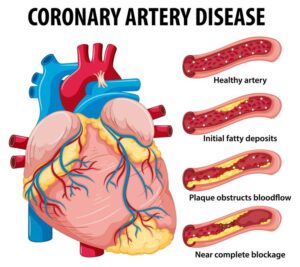
8)Coronary Artery Disease
Narrowed or blocked blood vessels limit blood flow to the heart.
Lifestyle changes, medication, and surgeries like angioplasty can manage it effectively.
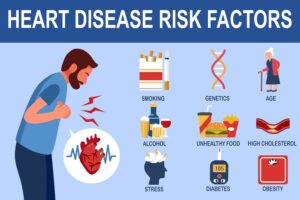
What Are the Causes and Risk Factors of Heart Disease?
Unhealthy lifestyle choices like smoking, lack of exercise, and poor diet are the primary culprits.
Genetics and pre-existing medical conditions also play a role. Recognize these and act early.
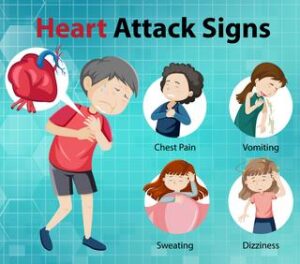
Warning Signs of Heart Disease
If you’re experiencing chest pain, fatigue, shortness of breath, or irregular heartbeats, consult a doctor immediately.
These are red flags you shouldn’t ignore.
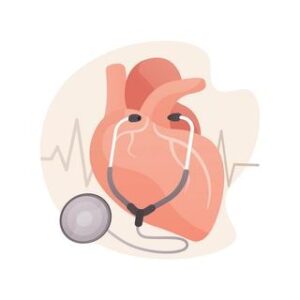
Diagnosis of Heart Diseases
Tests like ECG, Echo, and angiography are commonly used. Early diagnosis equals better management.
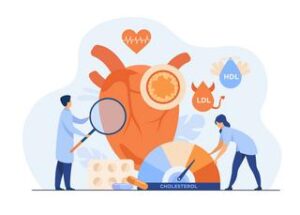
Treatment for Heart Diseases
Management involves medication, lifestyle changes, and sometimes surgery.
Each type of heart disease requires a tailored approach.

Prevention of Heart Diseases
Eat healthy, exercise regularly, and keep stress at bay.
Also, annual check-ups can act as a preventive measure.

Heart Disease Management
I understand the emotional weight of this topic. I’m not just saying this as a cardiologist but also as a fellow human being who has seen the ravaging effects of heart disease up close.
Every beat your heart takes is a commitment to life; every pulse is a silent vow to keep you going.
Let me share a story.
I once had a patient, a young father, who ignored his symptoms for too long.
He thought he was invincible, that heart diseases only happen to ‘other people.’
The tragedy shook his family, his young kids, who couldn’t understand why their father couldn’t come home anymore.
It’s not just a disease; it’s a cascading impact that affects everyone around you.
So, I urge you, don’t ignore the signs. Don’t think it can’t happen to you.
Don’t wait for a wake-up call to jolt you into action.

Your Heart is Your Family’s Heart-
You see, when you take care of your heart, you’re not just doing it for yourself.
You’re doing it for your spouse, your children, your friends, and everyone who holds a piece of their heart for you.
Just imagine their life without you; it would break them to lose you.

The Stigma Around Heart Diseases
I’ve met many patients who are embarrassed to admit they have heart issues.
They feel it makes them look weak. It’s high time we smashed this harmful stigma.
There’s no shame in having a heart condition.
The real tragedy is in not seeking help, in neglecting the warning signs, and in delaying management.

Time is Muscle
Remember, in heart diseases, time equals muscle.
The longer you delay treatment, the more muscle tissue you lose, and the harder it becomes to recover.
React swiftly, consult a specialist, and chalk out a management plan.

Reclaim Your Life
The road to recovery may be long, but trust me, it’s worth it.
Every step you take towards managing your heart condition is a victory.
It’s a new lease on life, a chance to reclaim the vitality and energy you once had.
You’ll find that life tastes a bit sweeter when you’ve faced down a beast like heart disease.
Conclusion:
Your Heart Deserves Love and Care.
We often search for joy and meaning in the external world, forgetting that the real treasure—our health, our heartbeat—resides within us.
Please don’t take your heart for granted. Types of Heart Diseases & its Management isn’t just a medical topic; it’s a testament to human resilience and the will to live.
Taking care of your heart is not an option; it’s a necessity. Understanding the types of heart diseases and their management can be a lifesaver.
I hope this blog enlightens you and prompts you to make heart-healthy choices.
So, I leave you with this thought-provoking question:
What steps are you willing to take, starting today, to show your heart the love and care it so richly deserves?
Note: This blog aims to create awareness but is not a substitute for professional medical advice. Always consult with your healthcare provider for diagnosis and treatment.
